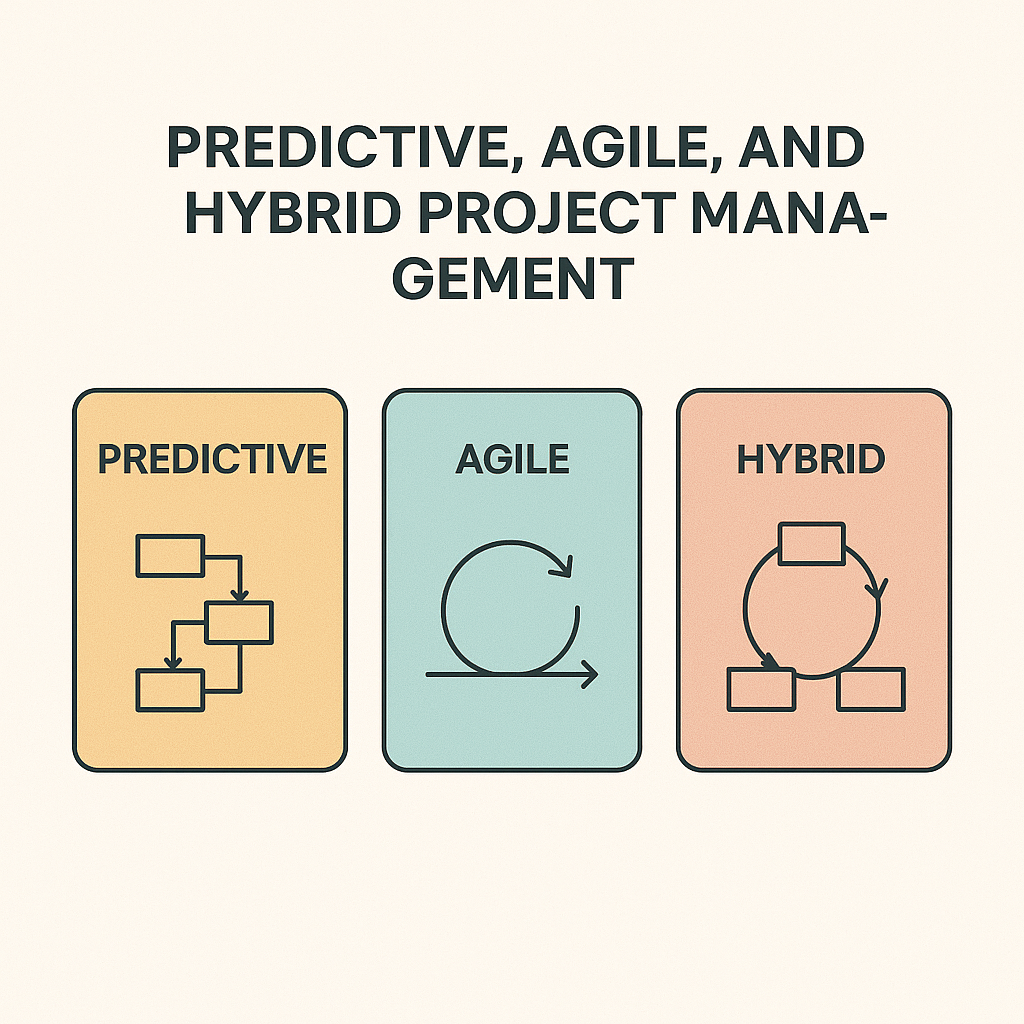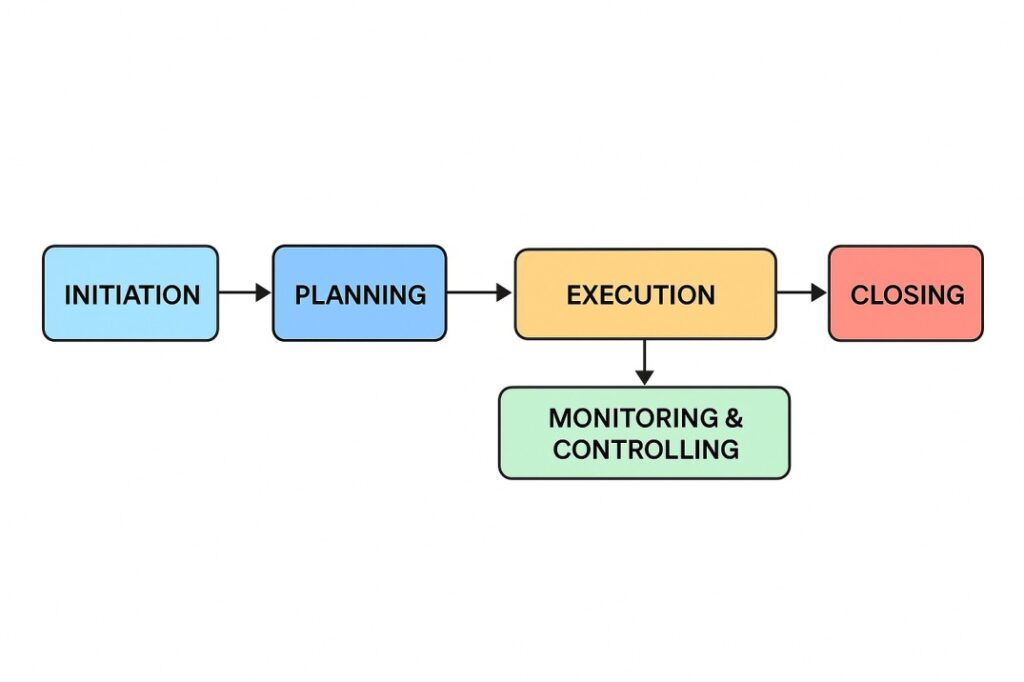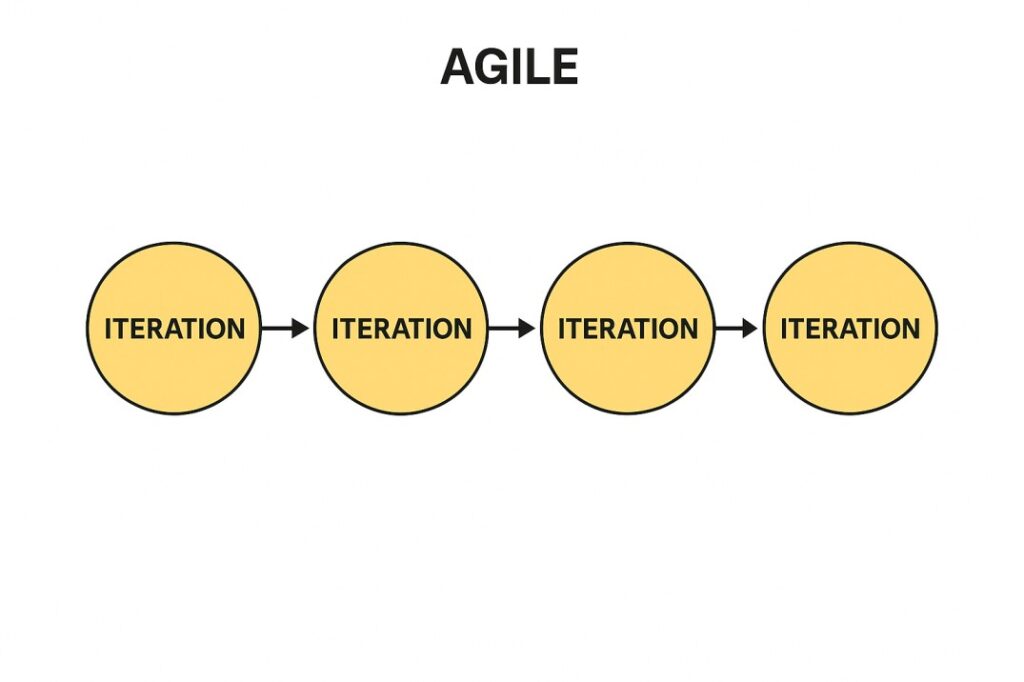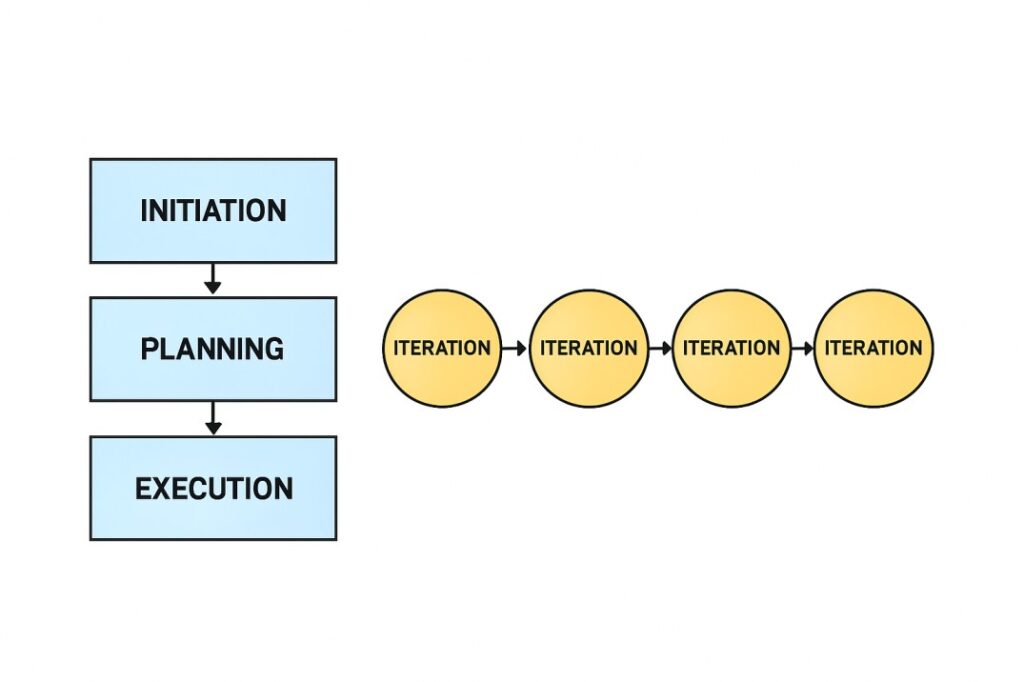
Professional project management comprises of Predictive, Agile & Hybrid Project Management. Predictive project management is also known as ‘Traditional project management’ or ‘Waterfall model’ becuase the project passes through a series of well defined phases like design, construction, testing etc. Agile project management is also known as ‘Adaptive project management’ where the project passes through a series of iterations. When we tailor the best practices from both predictive and agile and use them in projects, it is Hybrid project management.
Predictive Project Management: Predictive project management, often associated with traditional waterfall methodology, follows a linear and sequential approach to project execution. In this model, project requirements, scope, and deliverables are meticulously defined upfront, and the project progresses through predefined phases, such as initiation, planning, execution, monitoring & controlling and closure. Predictive project management is also referred to as traditional project management or waterfall project management.

Key characteristics of predictive project management include:
- Emphasis on detailed planning and documentation before project execution.
- Clear project milestones and deliverables are defined at the outset.
- Sequential workflow where each phase must be completed before moving to the next.
- Limited flexibility to accommodate changes once the project has begun.
- Well-suited for projects with stable requirements and predictable outcomes, such as construction projects or manufacturing initiatives.
Agile Project Management: Agile project management is a dynamic and iterative approach that prioritizes flexibility, collaboration, and responsiveness to change. Agile methodologies, including Scrum, Kanban, and Extreme Programming (XP), promote incremental delivery of value through short development cycles known as sprints or iterations. Agile project management is also referred to as Adaptive or Iterative project management.

Key characteristics of agile project management include:
- Iterative development cycles with frequent opportunities for feedback and adaptation.
- Cross-functional teams collaborate closely to deliver incremental features or functionality.
- Customer involvement and stakeholder engagement throughout the project lifecycle.
- Emphasis on delivering high-quality, working software or products in a timely manner.
- Ability to accommodate changing requirements and priorities, promoting continuous improvement and innovation.
Hybrid Project Management: Hybrid project management combines elements of both predictive and agile methodologies to leverage the strengths of each approach and mitigate their weaknesses. In a hybrid model, project managers tailor project management practices to suit the specific needs and characteristics of the project, blending traditional planning and control with agile principles of adaptability and responsiveness.

Conclusion
In conclusion, professional project management encompasses a spectrum of methodologies, including predictive, agile, and hybrid approaches, each offering unique benefits and challenges. By understanding and leveraging these methodologies effectively, project managers can optimize project outcomes, enhance stakeholder satisfaction, and drive organizational success in today’s dynamic business landscape.
We will discuss these in detail in the upcoming chapters.
